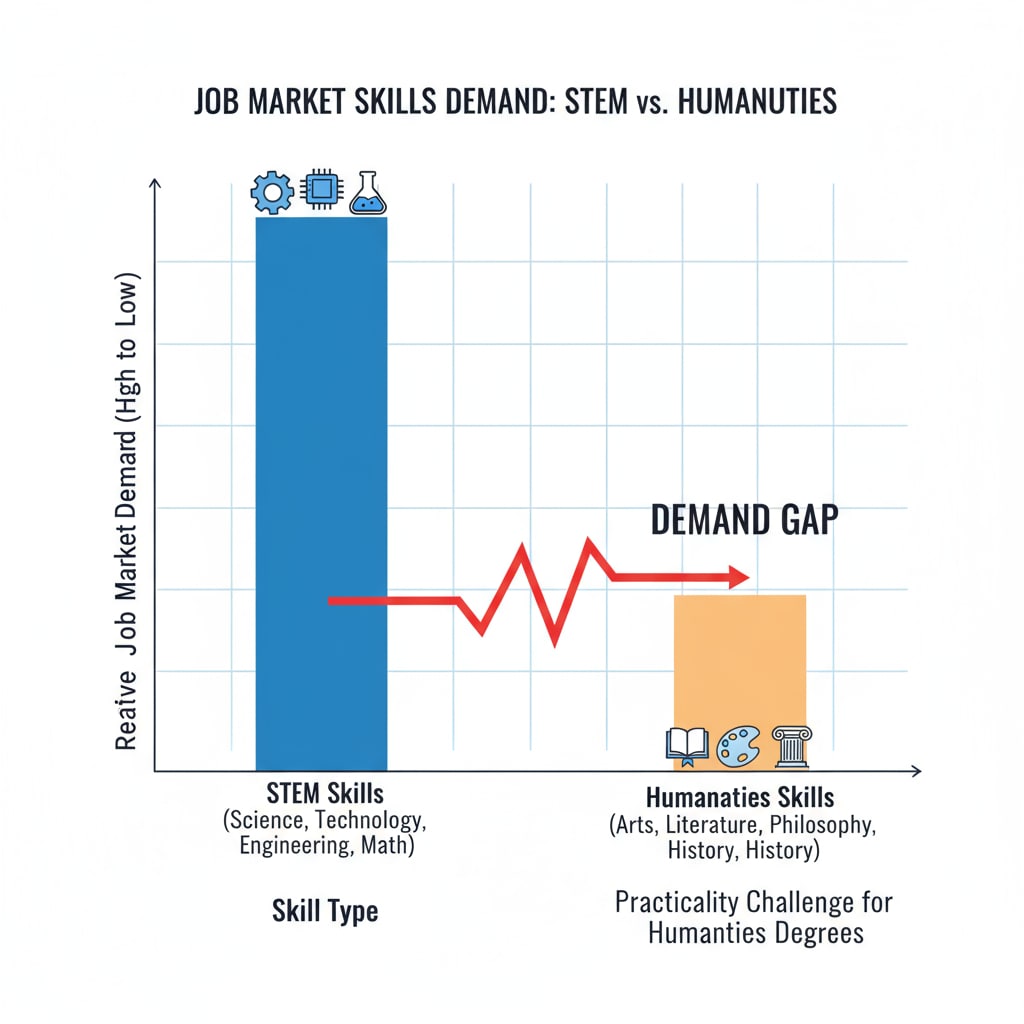In today’s job market, the practicality of humanities degrees has become a topic of much discussion. The skills acquired through a humanities education, while valuable in many ways, often face challenges when it comes to direct application in the workplace. This is especially true in a job market increasingly dominated by STEM (Science, Technology, Engineering, and Mathematics) fields.

The Gap Between Humanities Education and the Job Market
The K12 education system has long emphasized a well-rounded education that includes humanities. However, as students progress towards higher education and eventually enter the job market, they may find a significant disconnect. Humanities education typically focuses on critical thinking, communication, and cultural understanding. While these are essential skills, the job market often demands more specialized and technical skills. For example, in the technology sector, employers are looking for candidates with programming skills and knowledge of specific software. According to Britannica, the changing nature of work has led to a shift in what is considered valuable in the job market. This shift has left many humanities graduates struggling to find positions that fully utilize their skills.

Reasons for the Practicality Challenges
One reason for the challenges faced by humanities degrees in the job market is the perception that they do not lead to specific career paths. Unlike degrees in engineering or nursing, which have clear career trajectories, humanities graduates may have a wider range of options but less clarity on how to translate their skills into a particular job. Additionally, the rapid pace of technological change means that the skills needed in the job market are evolving quickly. Humanities education may not always keep up with these changes, leaving graduates ill-prepared. As a result, many employers may be hesitant to hire humanities graduates, fearing that they lack the practical skills required for the job. Another factor is the lack of emphasis on career preparation within the humanities curriculum. Many humanities courses focus more on academic research and theory rather than practical application. This can make it difficult for graduates to showcase their skills in a job interview or on a resume.
Readability guidance: As we can see, the issues are complex. By understanding these reasons, we can start to think about solutions. We need to bridge the gap between humanities education and the job market to ensure that humanities graduates are well-equipped for their future careers.


